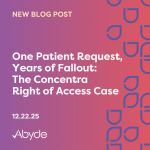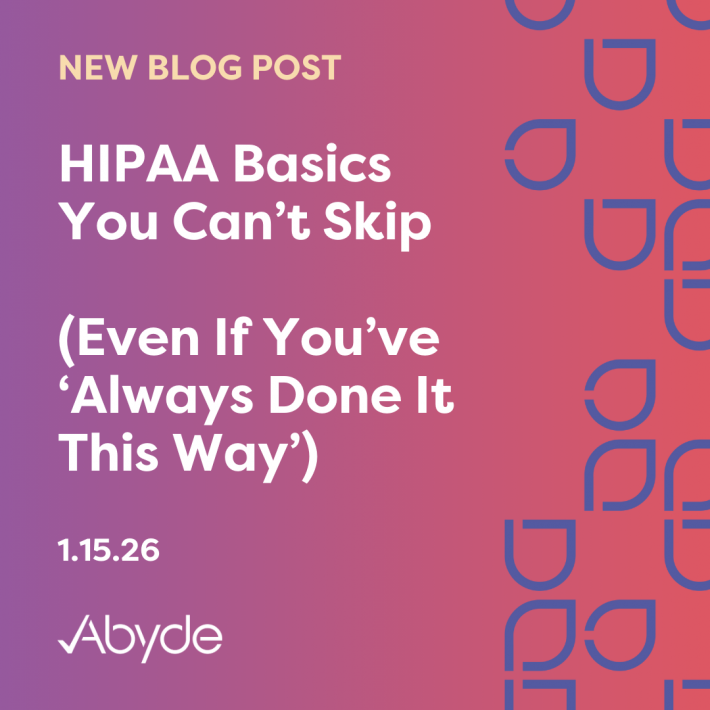April 10, 2024
It’s hard not to marvel at the updates in technology. Maybe it’s not exactly what we expected from the Jetsons’, but it’s pretty close, especially with the recent push of Artificial Intelligence over the past two years.
Artificial Intelligence, more commonly known as AI, is the technology that simulates human behavior and capabilities.
AI has become much more accessible to the public and has transformed how we work. One of the most common AI platforms used is ChatGPT, a generative AI tool that can write anything in seconds – and definitely helps in the medical field. For example, ChatGPT can help with scheduling appointments, treatment plan assistance, patient education, and medical coding. But here’s the thing: With all this amazing AI tech floating around, we gotta make sure it’s used in compliance with HIPAA.
We put together everything you need to know about using ChatGPT in a HIPAA-compliant way here!
While more AI tools are revolutionizing healthcare, it raises a crucial question: how do we stay HIPAA compliant?
Well, look no further! We’re blasting off into the future and giving everything you need to know when it comes to AI in healthcare.
AI Companies + BAAs = BFFs
These new healthcare AI companies would fall under Business Associates (BAs), if they have access to your patients’ Protected Health Information (PHI).
With every BA, it’s required to have a Business Associate Agreement (BAA). BAAs are documents that establish the working relationship between a Covered Entity (CE) and a Business Associate, describing each party’s responsibilities when it comes to the protection of patients’ sensitive information.
However, not all AI companies are willing to jump on the BAA bandwagon. By signing this agreement, they take on that shared responsibility when it comes to protecting PHI.
For instance, Open AI currently does not sign BAAs for ChatGPT, so sharing ePHI with them would not be HIPAA compliant.
However, some tech giants are willing to sign BAAs for their AI platforms. For instance,
Google has made strides in healthcare AI tools and has a process to enter a BAA with them for certain services.
Give it a Double Take
While AI can level up your practice, ensure that you keep a watchful eye on what information AI is producing. We are still in the infancy stage of AI in healthcare, and it’s bound to make mistakes.
Here’s your fun fact for the day. Did you know that when AI makes a mistake, it’s called a hallucination? Like how when we see things that aren’t there, the AI platform is ‘seeing’ patterns of information incorrectly, resulting in an inaccurate result.
So, when using AI, make sure you always give it the once over, making sure it’s on the right track.
What does the future of compliance look like?
Well, we know for sure more legislation is coming out regarding Artificial Intelligence. With the rise of new technologies in healthcare, like online tracking, the Office For Civil Rights (OCR) will release new guidance.
Artificial Intelligence is already on the radar for the government, with the Biden Administration unveiling an Executive Order on AI. Additionally, major healthcare organizations have committed to handling AI technology carefully, harnessing potential, while managing risks.
What can I do?
It’s a great, big beautiful tomorrow when it comes to the future of healthcare technology. We’re all along for the ride on the Carousel of Progress (Disney fans, anyone?).
Staying on top of the latest compliance updates is key to remaining compliant.
That’s how Abyde can help. We make compliance easy, making it the easiest part of running your practice or business. As technology continues to improve so should your compliance program. We turn the old binder in your practice or business into cloud-based software, making everything you need for compliance easily accessible.
To learn more about current compliance legislation, email us at info@abyde.com and schedule a consultation here for Covered Entities, and here for Business Associates.





